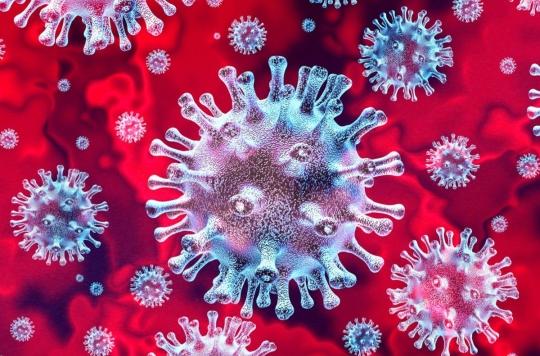The virus replicates thanks to a protein present in most of the human body, but it only targets certain organs, such as the heart or the lungs.

How the novel coronavirus works remains a mystery. All over the world, scientists are trying to better understand it in order to be able to better fight against it. A Spanish researcher explains in the specialized journal Chaos the reasons why Covid-19 only attacks certain organs: the lungs, heart, liver, kidneys and part of the nervous system.
Virus relay proteins
When a person is infected with the virus, it will seek to enter their cells. It does this by relying on a protein called angiotensin-converting enzyme 2.”This receptor is ubiquitous in most human organs, explains Ernesto Estrada, so if the virus circulates in the body, it can enter other organs and affect them. However, the virus only affects certain specific organs. The researcher explains that two proteins must overcome different obstacles to succeed in interacting. The movement of proteins in the body served as a research basis for the scientist to develop his theoretical model.
According to him, if SARS-COV-2 does not affect all organs, it is certainly because it can be transmitted in different ways. Ernesto Estrada developed a mathematical model that allowed him to identify 59 groups of proteins in the lungs. All of them are activators, in connection with other organs. This means that if these proteins are affected by a virus, they will transmit it to other proteins and so on. “Targeting these proteins in the lungs with existing drugs could prevent damage to proteins in other organs, and thus prevent multiple organ failure, which in many cases leads to patient death.”
If this study makes it possible to better understand the functioning of the virus, there are still questions. Ernesto Estrada plans to focus on the circulation of contaminated proteins between different organs in future work.
Where is the epidemic?
In France, the circulation of the virus is intensifying. According to the point of Public Health France As of August 11, there are a total of 227 clusters under investigation. Since the outbreak began, there have been 204,172 confirmed cases and 30,354 deaths. More than 5,000 people are still hospitalized.
France is not the only one to face an increase in contamination. In Spain, nearly 5,000 new cases were recorded last week, more than all the contaminations recorded in Germany, Italy, the United Kingdom and France.

.
















